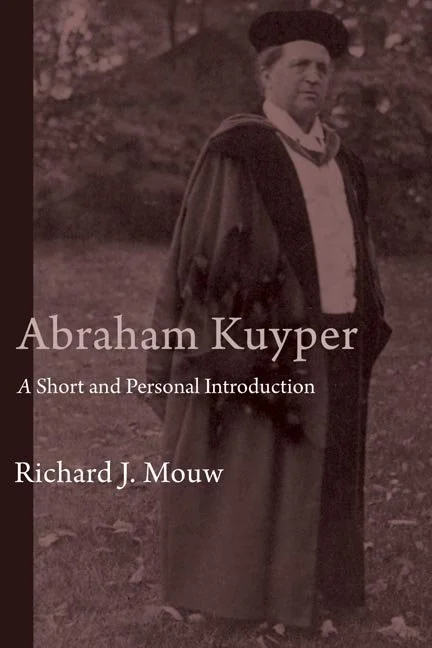Not One Square Inch
Recently I’ve become acquainted with and intrigued by the thought and work of Abraham Kuyper, a Dutch theologian who served as prime minister of the Netherlands a hundred years ago. I’d heard (and instantly loved) his most famous quote before I ever knew much about him:
There is not one square inch of the entire creation about which Jesus Christ does not cry out, “This is mine! This belongs to me!”
Regrettably, I must confess that I haven’t yet read any actual books by Kuyper himself, though the recently released English translation of Wisdom & Wonder: Common Grace in Science & Art (Christian’s Library Press) will soon remedy that. Thus far my introduction to Kuyper has come through a couple of books by Richard Mouw, recommended to me by Gideon Strauss. The first, which I wrote about in January, is a more general book on common grace theology, rooted in Kuyper’s thinking and published a decade ago.
The other is a new book called Abraham Kuyper: A Short and Personal Introduction (Eerdmans). It really is both short and personal. The first half is an overview of Kuyper’s thought on a number of issues related to theology and culture, and the second half is a sort of appropriation of that thinking for the twenty-first century. Mouw focuses on the parts of Kuyper’s thinking that have meant the most to him and that, in his view, have the most relevance for today’s reader.
Among the ideas Kuyper is most well known for is what is called sphere sovereignty. In this way of thinking, culture is composed of a number of distinct spheres. A sphere, as Mouw defines it, is “an arena where interactions take place, and where some sort of authority is exercised.” So the family, church, state, business, art, and university are each spheres, and each “has its own place in God’s plan for the creation, and each is directly under the divine rule.”
That concept may at first seem abstract or irrelevant to some, but to me, it provides a cohesive way of viewing the world, a language for talking about it, and it hints at both the why and the how of Christian cultural engagement. In this view, God intends for the family to be a family, for the church to be the church, for a business to be a business, for the state to be the state, and so on. These different spheres have different purposes and limitations, and it’s important to recognize both. And it’s important to recognize that in the Christian view, Christ is Lord over them all. He’s not unconcerned about any sphere; no sphere is to be tossed aside.
This has huge implications for how Christians view faithfulness in terms of vocation and citizenship and church membership and family life and, well, faithfulness in every square inch of creation.
Anyway, I wouldn’t say I’m ready to label myself a Kuyperian just yet, but I’m wondering if maybe David Brooks was onto something in his column on Friday:
For generations people have been told: Think for yourself; come up with your own independent worldview. Unless your name is Nietzsche, that’s probably a bad idea. Very few people have the genius or time to come up with a comprehensive and rigorous worldview.
If you go out there armed only with your own observations and sentiments, you will surely find yourself on very weak ground. You’ll lack the arguments, convictions and the coherent view of reality that you’ll need when challenged by a self-confident opposition…
The paradox of reform movements is that, if you want to defy authority, you probably shouldn’t think entirely for yourself. You should attach yourself to a counter-tradition and school of thought that has been developed over the centuries and that seems true.
What about you? Which influential thinkers or traditions have shaped how you see and live in the world? What does it look like to appropriate an old tradition for the twenty-first century?
